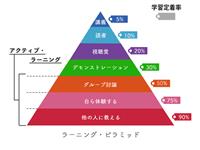1
相互依存性和贸易的好处
Interdependence and
the Gains from Trade
第3章
Chapter 3
2
相互依存性和贸易
Interdependence and Trade
想一想你日常生活中某一天:
Consider your typical day:
�?温州制造的闹钟把你吵醒。
You wake up to an alarm clock made in Wenzhou.
�?给自己倒上一杯用江西的桔子制作的橙汁。
You pour yourself some orange juice made from oranges
grown in Jiangxi.
�?你穿上用新疆的棉花制造、在广东工厂缝纫而成的衣服
You put on some clothes made of cotton grown in
Xinjiang and sewn in factories in Guangdong.
3
相互依存性和贸易
Interdependence and Trade
回忆一下,经济学是研究社会如何生产
并分配产品以试图满足其成员需求的。
Remember, economics is the study of
how societies produce and distribute
goods in an attempt to satisfy the wants
and needs of its members.
4
我们如何在全球经济中满足我们的需求?
How do we satisfy our wants and needs
in a global economy?
�?我们可以在经济上自给自足。
We can be economically self-sufficient.
�?我们也可以进行专业化分工,同别人进
行贸易,这就导致了经济上的相互依存
性。
We can specialize and trade with others,
leading to economic interdependence.
5
相互依存性和贸易
Interdependence and Trade
一个一般性的观察…
A general observation . . .
个人和国家借助专业化生产和贸易,将它作
为解决资源稀缺问题的一种方法。
Individuals and nations rely on specialized
production and exchange as a way to
address problems caused by scarcity.
6
相互依存性和贸易
Interdependence and Trade
但是,这又产生了两个问题:
But, this gives rise to two questions:
�?经济的相互依存性为什么是常态?
Why is interdependence the norm?
�?生产和贸易(的方式)是如何决定的?
What determines production and trade?
2
7
相互依存性为什么是常态?
Why is interdependence the
norm?
相互依存性的发生是因为当人们进行专业
化分工并同别人进行交易时,他们的处境
变好了。
Interdependence occurs because people are
better off when they specialize and trade
with others.
8
什么决定了生产和贸易的模式?
What determines the pattern of
production and trade?
生产和贸易的模式是基于机会成本
的差异。
Patterns of production and trade are
based upon differences in
opportunity costs.
9
�?从前有两个人比邻而居,名字分别叫做张顺和
李逵。二人均半天捕鱼,半天砍柴,过着自给
自足的生活。
�?相遇在干活回来的路上,他们往往会称赞对方
一番:
�?张顺:我看你真行,打来的柴比我的多好多啊!
�?李逵:过奖,老哥,你也不赖,是个捕鱼能手啊!
一个现代经济的寓言
A Parable for the Modern
Economy
10
张顺与李逵的生产可能性
The Production Opportunities of
Zhang Shun and Li Kui
生产一斤的时间(小时):一天(8小时)的产量(斤):
鱼 柴鱼 柴
张顺0.8小时 0.32小时10斤 25斤
李逵1.6小时 0.16小时5斤 50斤
11
自给自足
Self-Sufficiency
若彼此间无贸易
By ignoring each other:
�?他们各自消费自我生产的产品。
Each consumes what they each produce.
�?生产可能性边界也就是消费可能性边界
The production possibilities frontier is also the
consumption possibilities frontier.
12
生产可能性边界
Production Possibilities
Frontiers
鱼(斤)
柴(斤)
10
25
12.5
5
(a)张顺的生产可能性边界
Zhang Shun’s Production
Possibilities Frontier
0
A
3
13
生产可能性边界
Production Possibilities
Frontiers
鱼(斤)
柴(斤)
50
25
2.5
(a)李逵的生产可能性边界
Li Kui’s Production
Possibilities Frontier
0
B
5
14
自给自足
Self-Sufficiency
没有贸易的结果
The Outcome
Without Trade:
他们的生产和消费情
况What They
Produce
and Consume
张顺
5斤鱼 (A)
12.5斤柴
李逵
2.5斤鱼 (B)
25斤柴
15
�?有一天,李逵突然有了一个绝妙的主意。在
干活回来的路上,他对张顺说:
老哥,我有一个想法跟你商量一下。你瞧,你是个
捕鱼能手,为了维持生计,不得不去干打柴这样
属于我等粗人的活。让我们来合作一下。你可以
把一整天的功夫都尽兴地拿去打鱼,我也把所有
的时间都用来砍柴。当然,你需要柴,我也需要
鱼,我们可以将各自一半的劳动所得相互交换嘛!
这样,双方都皆大欢喜。你看怎样?
一个现代经济的寓言
A Parable for the Modern Economy
16
张顺和李逵专业生产和贸易
Zhang Shun and Li Kui
Specialize and Trade
如果他们各自生产他们适合生产的产品、
然后进行交易,那么他们的情况都会变好
Each would be better off if they specialized in
producing the product they are more suited to
produce, and then trade with each other.
�?张顺应该生产鱼。
Zhang Shun should produce fish.
�?李逵应该生产柴。
Li Kui should produce firewood.
17
贸易的好处
The Gains from Trade
他们生产什么
What They
Produce
他们贸易什么
What They
Trade
他们消费什么
What They
Consume
张顺
10斤鱼
0
斤柴
以5斤鱼
换得
25
斤柴
5斤鱼 (A*)
25
斤柴
李逵
0
斤鱼
50
斤柴
以
25
斤柴
换得
5
斤鱼
5
斤鱼
(B*)
25
斤柴
18
贸易扩大了消费可能性集合
Trade Expands the Set of
Consumption Possibilities
鱼(斤)
柴(斤)
10
25
12.5
50
A
A*
张顺贸易后的消
费Zhang Shun’s
consumption
with trade
张顺贸易前的消
费Zhang Shun’s
consumption
without trade
(a)贸易如何增加了张顺的消费
How Trade Increases Zhang
Shun’s Consumption
4
19
贸易扩大了消费可能性集合
Trade Expands the Set of
Consumption Possibilities
鱼(斤)
柴(斤)
50
25
2.5
0
B
5
B*
李逵贸易前的消费
Li Kui’s consumption
without trade
李逵贸易后
的消费
Li Kui’s
consumptio
n with trade
(b)贸易如何增加了李逵的消费
How Trade Increases Li Kui’s
Consumption
20
从贸易中获益
The Gains from Trade
消费的增加
The Increase in
Consumption
张顺
12.5斤柴 (A*- A)
鱼数量不变
李逵
2.5斤鱼 (B*- B)
柴数量不变
21
比较优势原理
The Principle of
Comparative Advantage
�?谁应当生产什么?Who should produce what?
�?每种产品应该换得多少?How much should be
traded for each product?
张顺和李逵,谁能以较低的成本生产鱼
Who can produce fish at a lower cost—
Zhang Shun or Li Kui?
生产成本的差异决定了:
Differences in the costs of production
determine the following:
22
生产成本的差异
Differences in Costs of Production
�?生产一单位产品(例如一斤鱼)的时间数。
The number of hours required to produce a unit
of output. (for example, one unit of fish)
�?为了一种产品而放弃另一种产品的机会成本。
The opportunity cost of sacrificing one good for
another.
度量生产成本差异有两种方法
Two ways to measure differences
in costs of production:
23
比较优势
Comparative Advantage
�?根据生产商的机会成本进行比较。
Compares producers of a good according to
their opportunity cost.
�?机会成本较小的生产商生产该种产品时具有比
较优势。
The producer who has the smaller opportunity
cost of producing a good is said to have a
comparative advantage in producing that good.
24
专业化和贸易
Specialization and Trade
�?谁在生产鱼上具有比较优势?
Who has the comparative
advantage in the production of
fish?
张顺还是李逵?
Zhang Shun or Li Kui?
5
25
生产鱼和柴的机会成本
The Opportunity Cost
of Fish and Firewood
机会成本Opportunity Cost of:
1 斤鱼1 斤柴
张顺0.8/0.32=2.5斤柴(1/2.5)=0.4斤鱼
李逵1.6/0.16=10斤柴(1/10)=0.1斤鱼
…因此,张顺在生产鱼方面具有比较优势,而李逵在生因此,张顺在生产鱼方面具有比较优势,而李逵在生
产柴方面具有比较优势产柴方面具有比较优势
…so, Zhang Shun has a comparative advantage in
the production of fish but Li Kui has a comparative
advantage in the production of firewood.
26
比较优势与贸易
Comparative Advantage and
Trade
机会成本的差别(即比较优势)为人
们从贸易中受益创造了条件。
Differences in opportunity cost and
comparative advantage create the
gains from trade.
可以分两步来理解……
27
比较优势与贸易
Comparative Advantage and
Trade
�?第一步:当每个人专门生产自己有比较
优势的物品时,经济的总产量增加了;
变大的经济“蛋糕”可以用来让每个人变
得更好。
When each person specializes in
producing the good for which he or she
has a comparative advantage, total
production in the economy rises, and this
increase in the size of the economic pie
can be used to make everyone better off.
28
比较优势与生产效率
Comparative Advantage and
Production Efficiency
�?考虑由张顺和李逵组成一个生产小组。应该如何在他
们之间分配工作,才能使小组总产出更多?
�?张顺生产1斤鱼的(机会)成本为2.5斤柴,而李逵的机
会成本为10斤柴。
�?因此,每将1斤鱼的生产任务从李逵处重新分配到张顺
处,张顺就要少生产2.5斤柴,而李逵则可以多生产10
斤柴。整个生产小组将在生产鱼的数量不变的情况下
多生产10-2.5=7.5斤柴!
�?在生产小组中,让张顺和李逵都生产他们各自具有比
较优势(低的机会成本)的产品(即专业化),提高
了整个生产小组的总产量,向外移动了生产可能性边
界。
29
比较优势与贸易
Comparative Advantage and
Trade
�?第二步:只要两个人有不同的机会成本
,每个人都可以通过低于自己生产时的
机会成本的价格得到一种物品,而从贸
易中获益。
In other words, when two people have a
different opportunity costs, each can
benefit from trade by obtaining a good at
a price lower than his or her opportunity
cost of that good.
30
比较优势与贸易
Comparative Advantage and
Trade
�?在贸易的时候,为了使自己受益……
�?张顺出售他具有比较优势(低的机会成
本)的产品——鱼,李逵出售他具有比
较优势的产品——柴。
�?张顺应该以不低于2.5斤柴的数量出售1斤
鱼;李逵应该以不高于10斤柴的数量购
买1斤鱼。
�?交换比例在1斤鱼换2.5-10斤柴之间。
6
31
比较优势原理
The Principle of
Comparative Advantage
�?比较优势和机会成本差异是专业化生产
以及进行贸易的基础。
Comparative advantage and differences in
opportunity costs are the basis for specialized
production and trade.
�?无论什么时候,只要潜在的贸易伙伴存
在机会成本的差异,他们都能从贸易中
获益。
Whenever potential trading parties have
differences in opportunity costs, they can each
benefit from trade.
32
贸易的好处
Benefits of Trade
贸易能使社会中的每一位成员获得好
处,因为贸易允许人们从事他们具有
比较优势的专业生产。
Trade can benefit everyone in a
society because it allows people to
specialize in activities in which they
have a comparative advantage.
33
亚当?斯密与贸易
Adam Smith and Trade
亚当?斯密在1776年《国富论》一书中对贸易与
经济的相互依赖性做了详尽的分析——经济学
家们至今对此仍深信不疑。
In his 1776 book An Inquiry into the Nature and
Causes of the Wealth of Nations, Adam Smith
performed a detailed analysis of trade and
economic interdependence, which economists
still adhere to today.
34
大卫?李嘉图与贸易
David Ricardo and Trade
大卫?李嘉图在1816年的《政治经济学
与税收》书中发展了我们今天所熟知
的比较优势原则。
In his 1816 book Principles of Political
Economy and Taxation, David Ricardo
developed the principle of comparative
advantage as we know it today.
35
绝对优势
Absolute Advantage
�?描述一个人、一家公司或一个国家相对其他人、公
司或国家的生产力。
Describes the productivity of one person, firm, or
nation compared to that of another.
�?生产商在生产一种产品时的要素投入少,则他在生
产该种产品时具有绝对优势。
The producer that requires a smaller quantity of
inputs to produce a good is said to have an absolute
advantage in producing that good.
36
绝对优势
Absolute Advantage
�?张顺仅需要0.8小时生产一斤鱼,而李逵却需要1.6小时
Zhang Shun needs only 0.8 hours to produce a unit of
fish, whereas Li Kui needs 1.6 hours.
�?李逵生产一斤柴仅需要0.16小时,而张顺却需要0.32小
时。
Li Kui needs only 0.16 hour to produce a unit of
firewood, whereas Zhang Shun needs 0.32 hours.
张顺生产鱼具有绝对优势张顺生产鱼具有绝对优势, 李逵生产柴具有绝对优势李逵生产柴具有绝对优势
Zhang Shun has an absolute advantage in the
production of fish, and Li Kui has an absolute
advantage in the production of firewood.
7
37
绝对优势和比较优势
Absolute Advantage v.
Comparative Advantage
�?是谁决定着贸易和专业化分工,
比较优势还是绝对优势?
Which determines trade and
specialization? Absolute or
comparative advantage?
�?考虑下面的例子……
38
李逵与李鬼的生产可能性
The Production Opportunities of
Li Kui and Li Gui
生产一斤的时间(小时):一天(8小时)的产量(斤):
鱼 柴鱼 柴
李鬼2.67小时 0.53小时3斤 15斤
李逵1.6小时 0.16小时5斤 50斤
39
�?李逵在鱼和柴的生产上都具有绝对
优势,但只在柴的生产上具有比较
优势。
�?李鬼多生产鱼,李逵多生产柴,然
后进行贸易,可以使双方获得好处
。
�?为什么?
绝对优势和比较优势
Absolute Advantage v.
Comparative Advantage
40
比较优势的应用
�?样样比人强,样样自己干,是正
确的吗?
�?富国与穷国的贸易是富国剥削穷
国吗?
41
经济学十大原理在本讲中的运用
�?原理1:人们面临得失交换。
�?原理2:做某事的机会成本就是你为
之放弃的东西。
�?原理3:理性人在边际上思考问题。
�?原理4:人对激励做出反应。
�?原理5:贸易使人人受益。
42
总结
Summary
�?经济的相互依赖性和贸易允许人们享受
更多数量、更多种类的商品和服务。
Interdependence and trade allow people to
enjoy a greater quantity and variety of goods
and services.
8
43
总结
Summary
�?生产一种商品,要素投入较少的生产
商具有“绝对优势”
The person who can produce a good with
a smaller quantity of inputs has an
absolute advantage.
�?生产一种商品,机会成本较小的生产
商具有“比较优势”
The person with a smaller opportunity
cost has a comparative advantage.
44
总结
Summary
�?从贸易中获益是来自于比较优势,而非
绝对优势
The gains from trade are based on
comparative advantage, not absolute
advantage.
�?比较优势既适用于国家又适用于个人
Comparative advantage applies to
countries as well as to people.




